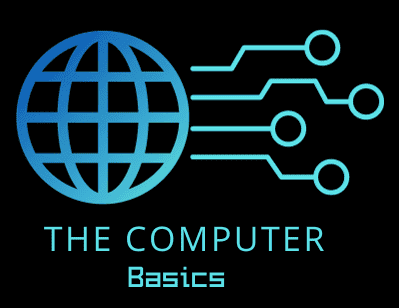Picking a cloud storage provider can feel overwhelming. There are many options out there, each with different features and pricing. But don’t worry – it’s not as complicated as it seems.
When choosing cloud storage, focus on your specific needs and budget. Think about how much space you need, what types of files you’ll store, and how often you’ll access them. Some providers offer great deals for large amounts of storage, while others excel at file sharing or syncing across devices.
Security is also key. Look for providers that use strong encryption to protect your data. And don’t forget about ease of use – a clunky interface can make even the best storage a pain to work with. By considering these factors, you’ll be well on your way to finding the perfect cloud storage solution for you.
Key Takeaways
- Match the provider’s features to your specific storage needs
- Compare pricing plans to get the best value for your budget
- Check security measures and ease of use before making a decision
Understanding Cloud Storage Basics
Cloud storage lets you keep files online instead of on your computer. It’s handy and keeps your data safe.
Types of Cloud Storage
You have a few cloud storage options to pick from:
- Personal cloud storage: For your own files and photos
- Public cloud storage: Big companies run these for lots of users
- Private cloud storage: Just for one company to use
- Hybrid cloud storage: Mixes public and private
Object storage is good for things like photos or videos. Block storage works well for stuff that changes a lot, like databases.
How Cloud Storage Works
When you save a file to the cloud, it goes to a data center. These are big buildings full of computers. Your file gets split into pieces and stored on different machines.
You can then get to your files from any device with internet. The cloud figures out where all the pieces are and puts them back together for you.
Cloud platforms use fancy tech to keep your data safe. They make copies of your files and store them in different places. This way, if one computer breaks, your stuff is still okay.
Cloud storage is part of cloud computing. It lets you use far-away computers to do work and store things. This saves space on your own devices and lets you work from anywhere.
Key Features to Look for
When choosing a cloud storage provider, several important features can make or break your experience. Let’s explore the essential aspects you should consider.
Storage Capacity and Scalability
Cloud storage should grow with your needs. Look for providers offering flexible plans that allow you to easily increase or decrease your storage space. Many services start with a free tier, typically ranging from 2GB to 15GB.
Paid plans often offer much more, from 100GB to several terabytes. Some providers even offer unlimited storage for business accounts. Check if there are storage limits on file sizes or types.
Consider your current needs and potential future growth. A good provider will let you upgrade smoothly without hassle or data transfer fees.
Accessibility and Collaboration Features
Easy access to your files from any device is crucial. Look for providers with user-friendly apps for desktop and mobile platforms. Web interfaces should be intuitive and responsive.
File sharing capabilities are a must. You’ll want options to share files or folders with specific people or groups. Look for features like:
- Link sharing with expiration dates
- Password protection for shared links
- Permissions settings (view-only, edit, etc.)
- Real-time collaboration on documents
Some providers offer integration with productivity suites, making teamwork smoother.
Data Backup and Recovery Capabilities
Your cloud storage should keep your data safe. Look for providers that offer automatic backups and versioning. This lets you restore previous versions of files if needed.
Key features to consider:
- Frequency of backups
- How long backups are kept
- Ease of restoring files or entire folders
- Ability to recover deleted files
Some providers offer disaster recovery options. This can be crucial for businesses that can’t afford data loss or downtime.
Security Measures and Compliance
Your data’s safety is paramount. Look for providers with strong security measures. Key features include:
- End-to-end encryption for data in transit and at rest
- Two-factor authentication
- Advanced access controls
Check if the provider complies with relevant industry standards like GDPR, HIPAA, or SOC 2. This is especially important if you’re handling sensitive data.
Some providers offer additional security features like:
- Zero-knowledge encryption
- Remote device wipe
- Audit logs
Remember, the strongest security measures are only effective if you use them. Always enable two-factor authentication and use strong, unique passwords.
Evaluating Performance and Reliability

When picking a cloud storage provider, you need to look at how well they perform and if you can count on them. Let’s check out the key things that matter.
Data Center Infrastructure
Cloud providers use big data centers to keep your stuff safe and working. These centers have lots of computers and backup systems. They use cool tech to keep everything running smooth.
Some providers have data centers all over the world. This helps your data stay close to you, making things faster. It’s good to pick a provider with centers near you.
Look for providers that use solid-state drives (SSDs). These are faster than old-school hard drives. They make your files load quicker.
Uptime and Availability
You want your files ready when you need them. That’s where uptime comes in. It’s how often the service is working.
Good providers promise 99.9% uptime or more. This means very little downtime. Check their Service Level Agreements (SLAs) for this info.
Ask about their backup plans too. What happens if one data center has trouble? Can they switch to another fast?
Some providers use special tech to keep your data safe. Look for things like RAID storage. It helps prevent data loss if a hard drive breaks.
Speeds and Efficiency
Fast speeds make your work easier. You want quick uploads and downloads. Bandwidth and latency are key here.
Bandwidth is how much data can move at once. More is better. Latency is the delay before data starts moving. Less is better.
Test the service before you commit. Upload and download some files. See how it feels. Remember, your internet speed matters too.
Look for providers with good sync tools. These keep your files up to date across devices. Fast syncing means you always have the latest version of your work.
Cost Considerations

When choosing a cloud storage provider, money matters. You’ll want to look at different pricing options and see if you can try services for free before committing.
Different Pricing Plans
Cloud storage providers offer various pricing models to fit different needs. You might see per-gigabyte pricing or flat rates for set storage amounts. Some plans charge by user, while others have unlimited users.
Pay attention to what’s included. Does the price cover just storage, or are there extras like advanced security or collaboration tools? Compare the cost per terabyte across providers to get the best deal.
Watch out for hidden fees. Some services charge for downloads or API calls. Others may have bandwidth limits.
Consider your long-term needs. A plan that seems cheap now might cost more as your storage needs grow. Look for providers that let you scale up easily without big price jumps.
Free Trials and Services
Many cloud storage providers offer free trials or basic free plans. These can help you test the service before you buy.
Free trials usually last 14-30 days. They often give full access to paid features. This lets you really try out the service.
Some providers have permanent free tiers. These typically offer limited storage space. For example, Google Drive gives 15GB free. Dropbox starts at 2GB free.
Free plans can be great for personal use or small projects. But they may lack features businesses need. They also might not be as secure as paid options.
Be careful with free trials that require a credit card. You might get charged if you forget to cancel. Look for trials that don’t need payment info upfront.
Support and Vendor Evaluation

When picking a cloud storage provider, you’ll want to look closely at their support offerings and overall reputation. These factors can make or break your experience.
Customer Support and Service Level Agreements
Good customer support is crucial for any cloud storage service. Look for providers that offer 24/7 help through multiple channels like phone, email, and chat.
You’ll also want to check out their service level agreements (SLAs). These spell out what you can expect in terms of uptime, data protection, and problem-solving times.
Make sure the SLA matches your needs. For example, if you’re running a business, you might need 99.99% uptime. The SLA should also cover data recovery in case of disasters.
Don’t forget to read reviews from other users. They can give you real-world insights into how well the provider actually sticks to their promises.
Selecting the Right Cloud Storage Vendor
Picking the right cloud storage vendor is a big decision. Start by making a list of your must-have features and nice-to-haves.
Compare different providers based on:
- Storage limits
- File sharing options
- Sync speeds
- Security features
- Price
It’s often smart to go with a well-known provider. They usually have more resources for keeping your data safe and available.
But don’t rule out smaller players. They might offer specialized features that fit your unique needs better. Just make sure they have a solid track record and good financial backing.
Try out a few options with free trials before you commit. This hands-on experience can help you find the best fit for your needs.

